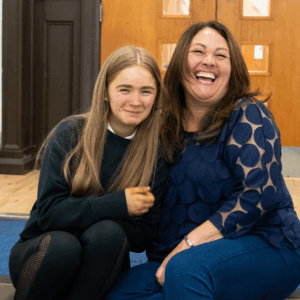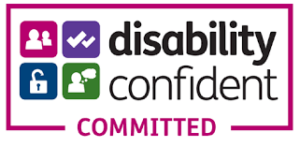“If I wasn’t in care, I’d be a totally different person… [I’m] always going to remember.”
S2 Young Person, Portlethen Academy
This week, as Care Experienced Week takes place, the theme of Rights could not be more crucial. When Scotland launched The Promise in 2020, its aim was to make Scotland a place where every young person grows up feeling love, safe and respected. Many years before, in 2007, MCR Pathways was founded in the aim of reducing the outcomes gap that existed between Care Experienced young people and their peers, rooted within education.
Whilst great progress has been made since 2020, the outcomes gap between Care Experienced young people stubbornly persists across the UK. This Care Experienced Week, MCR continues to advocate and empower Care Experienced people across the country, calling on the governments to ensure that their basic, daily rights are met and enhanced, so every young person growing up in the UK truly does feel love, safe and respected.
Unfortunately, many young people in the UK still aren’t being afforded, know their daily rights or are unsure of the process to challenge when these rights aren’t being met.
The Gap in Scotland
The ongoing work on the Children (Care, Care Experience and Services Planning) (Scotland) Bill is a step toward upholding the rights of Care Experienced young people, but it doesn’t go far enough. The scope of this bill appears limited, partially due to the timeline that is being pushed to ensure this is passed before the end of the next Parliamentary term.
Furthermore, the calls from MCR Pathways’ Young National Advisory Board (YNAB) members on the benefits of a Universal Definition and the WhoCares? Scotland Independent Lifelong Advocacy Campaign were either omitted entirely or lacked crucial elements such as the importance of independent advocacy.
There is a larger concern that even with this Bill, the target to meet and deliver The Promise by 2030 is unrealistic. Whilst many organisations like ourselves continue to deliver The Promise every day, all public bodies and the Government must provide greater transparency about roles and responsibilities and whether this guarantee to young people will actually be met.1
The Exclusion of Informal Kinship Care
There is a distinct lack of will to enhance the rights of informal kinship care in this Bill. Many young people who are supported on our programme are in informal kinship care arrangements and experience the same gaps in opportunities and outcomes as other Care Experienced young people. The current exclusion of informal kinship care from a variety of support, due to the current criteria of the ‘Looked After Children’ (LAC), means that many are at risk of being let down and not being afforded equal entitlement and protection.
As one of our YNAB members, who has experience of informal kinship care, told us:
“Informal kinship care needs to be recognised as Care Experienced so they can access all that they need.”
If Scotland and the UK as a whole are serious about supporting and affording equal rights to all Care Experienced young people, every form of care must be included.
The Gap in England
In England, the United Nations Convention on the Rights of the Child (UNCRC) is not currently incorporated into domestic law, unlike in Scotland. Implementing the UNCRC would strengthen protections and apply duties to all public authorities and professionals who work with Care Experienced young people. 2
MCR Pathways will support the continuation of a rights-respecting society across the whole of the UK and the extension of prioritising children’s rights in Government, such as The Promise in Scotland. If the UNCRC was implemented, current work would strengthen, such as the Children Act and Children and Social Work Act 2017, to continue to keep children safe, prioritising their welfare and the extension of corporate parenting duties in local authorities up until the age 25.
However, a postcode lottery of support exists in both the English and Scottish landscape. Many Care Experienced young people across the UK face barriers and inconsistencies when attempting to access their rights and vital support when moving from one local authority to another.
This systematic issue must be addressed across the UK to provide universal entitlements and quality of support for all. With the Children, Wellbeing and Schools Bill, there is still a chance to strengthen much-needed protections, extended corporate parenting responsibilities, prioritise early intervention, and enhance support for many children and young people.
Our Essential Calls to Action
Since the evolution of our Policy and Public Affairs work, MCR Pathways have extended policy engagement to ensure work for and with Care Experienced young people addresses the current gaps and inequities that exist for them.
MCR Pathways have engaged with young people across the programme both in schools and those on the Young National Advisory Board as school leavers as well as collaborated with our strong ecosystem of partners spanning all sectors. This will continue until all Care Experienced young people are afforded the same rights and opportunities as their peers, so they can truly go on to develop, grow and thrive.
Looking ahead to 2026 – the year of a Scottish General Election, one year closer to the Promise’s deadline of 2030, and a year away from the halfway point of a maximum parliamentary term for the current UK Government – our decision-makers and leaders need to seriously take action to ensure that Care Experienced children and young people’s rights are fully respected and upheld by:
For both governments:
- Enshrine Care Experience as a Protected Characteristic:
Many local authorities and public bodies have already made Care Experience a protected characteristic, including over 90 local authorities across the UK 3 . MCR Pathways supports calls for this to be enshrined under the Equality Act (2010). - Tackle stigma and systemic bias: In line with the creation of a protected characteristic and its ability to strengthen protections against discrimination, more work needs to be done to ensure that culturally sensitive care is provided and systematic bias that exists across society is tackled.
- Champion the power of relationship-based mentoring: Ensure every Care Experienced Young Person across the UK has someone to help them find their way.“Talk about [care experience] more and stop jumping to conclusions… treat us like young adults instead of troubled teenager.” S3 Young Person, Perth Grammar
- End the postcode lottery of support:
eliminate siloed working across Local Authorities that results in Care Experienced Young People being passed from pillar to post and denied vital support based purely on where they live.
- Enshrine Care Experience as a Protected Characteristic:
“We are having situations where young people are being asked to move back into Glasgow but they’ve lived their whole lives in another city so don’t want to move back but their city won’t provide aftercare because they weren’t born there.” YNAB Member
- Equal entitlement for all care forms: Financial, emotional and practical support for children and young people in informal kinship care arrangements and asylum-seeking children and young people
- Extend mental health support for Care Experienced children and young people: Some of the YNAB spoke of specific calls to extend mental health support for Care Experienced people so they are able to access this whenever they may need it, despite age.
- Actively centre the voices of Care Experienced Young People: in the creation, scrutiny and amendments of any future legislation or policy that directly impacts their lives, as constituted in UNCRC Article 12. 4
For the UK Government:
- End the Care Cliff: Support Become’s campaign to End the Care Cliff to ensure young people in England are not forced to leave care before they are ready, providing all young care leavers with the sustained support they need.
For the Scottish Government:
- Strengthen the Children (Care, Care Experience and Services Planning) (Scotland) Bill: Include or introduce a timeline for a wide-reaching, inclusive, opt-in definition that reflects the lifelong experience of care, works to tackle stigma, and ensures equal access to provision. As well as person-centred lifelong independent advocacy for Care Experienced people of all ages.
- Ensure The Promise is met: Provide greater transparency and clear reporting to guarantee The Promise is not only met by 2030, but fully delivered and sustained beyond this deadline.
The fight for equal rights and opportunities for Care Experienced young people continues. If you are a decision maker, a public body representative, or your organisation wants to engage with our policy calls, please reach out to our Policy and Public Affairs team at policy@mcrpathways.org.

Yve Barry
Policy and Public Affairs Officer





